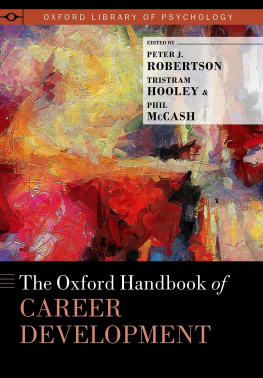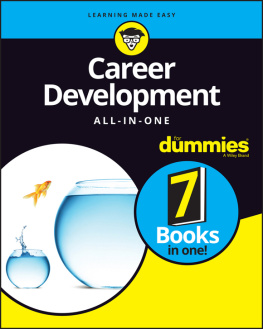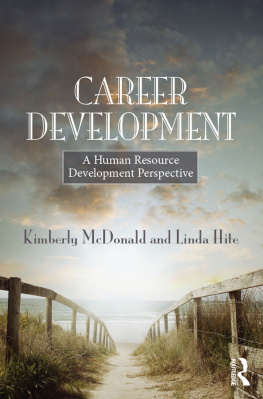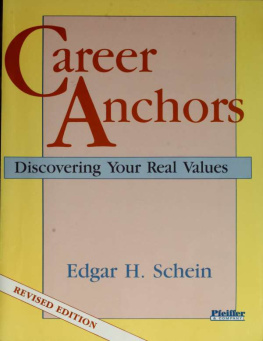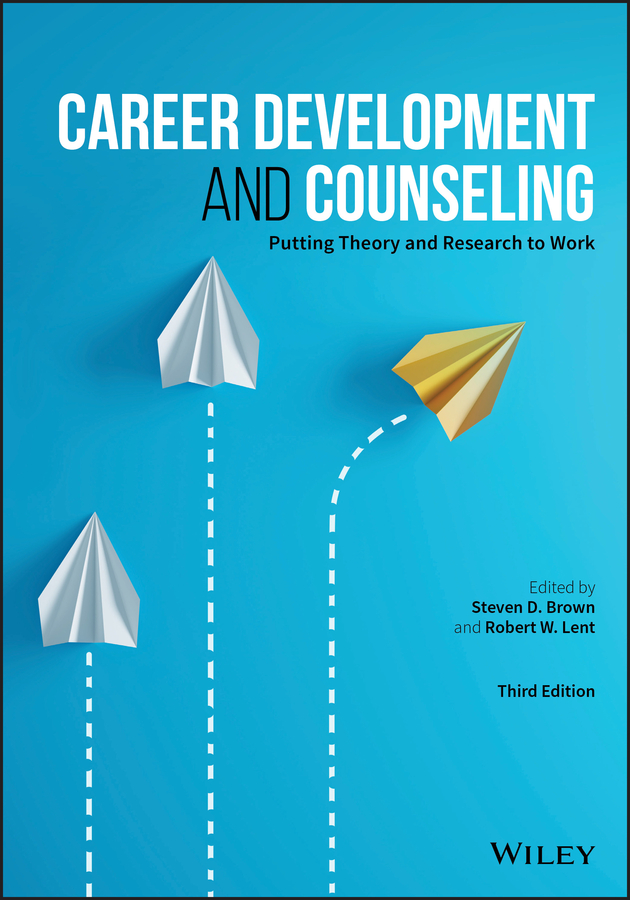
Table of Contents
List of Tables
- Chapter 2
- Chapter 3
- Chapter 6
- Chapter 16
- Chapter 17
- Chapter 22
- Chapter 23
List of Illustrations
- Chapter 2
- Chapter 3
- Chapter 4
- Chapter 5
- Chapter 7
- Chapter 8
- Chapter 17
- Chapter 19
- Chapter 20
- Chapter 21
Guide
Pages
Career Development and Counseling
Putting Theory and Research to Work
Third Edition
Edited by
Steven D. Brown
Robert W. Lent

Copyright 2021 by John Wiley & Sons, Inc. All rights reserved.
Published by John Wiley & Sons, Inc., Hoboken, New Jersey.
Published simultaneously in Canada.
No part of this publication may be reproduced, stored in a retrieval system, or transmitted in any form or by any means, electronic, mechanical, photocopying, recording, scanning, or otherwise, except as permitted under Section 107 or 108 of the 1976 United States Copyright Act, without either the prior written permission of the publisher, or authorization through payment of the appropriate percopy fee to the Copyright Clearance Center, Inc., 222 Rosewood Drive, Danvers, MA 01923, (978) 7508400, fax (978) 6468600, or on the web at www.copyright.com. Requests to the publisher for permission should be addressed to the Permissions Department, John Wiley & Sons, Inc., 111 River Street, Hoboken, NJ 07030, (201) 7486011, fax (201) 7486008.
Limit of Liability/Disclaimer of Warranty: While the publisher and author have used their best efforts in preparing this book, they make no representations or warranties with respect to the accuracy or completeness of the contents of this book and specifically disclaim any implied warranties of merchantability or fitness for a particular purpose. No warranty may be created or extended by sales representatives or written sales materials. The advice and strategies contained herein may not be suitable for your situation. You should consult with a professional where appropriate. Neither the publisher nor author shall be liable for any loss of profit or any other commercial damages, including but not limited to special, incidental, consequential, or other damages.
This publication is designed to provide accurate and authoritative information in regard to the subject matter covered. It is sold with the understanding that the publisher is not engaged in rendering professional services. If legal, accounting, medical, psychological, or any other expert assistance is required, the services of a competent professional person should be sought.
Designations used by companies to distinguish their products are often claimed as trademarks. In all instances where John Wiley & Sons, Inc. is aware of a claim, the product names appear in initial capital or all capital letters. Readers, however, should contact the appropriate companies for more complete information regarding trademarks and registration.
For general information on our other products and services, please contact our Customer Care Department within the United States at (800) 7622974, outside the United States at (317) 5723993 or fax (317) 5724002.
Wiley publishes in a variety of print and electronic formats and by printondemand. Some material included with standard print versions of this book may not be included in ebooks or in printondemand. If this book refers to media such as a CD or DVD that is not included in the version you purchased, you may download this material at http://booksupport.wiley.com. For more information about Wiley products, visit www.wiley.com.
Library of Congress CataloginginPublication Data
Names: Brown, Steven D. (Steven Douglas), 1947 | Lent, Robert W. (Robert William), 1953
Title: Career development and counseling : putting theory and research to work / edited by Steven D. Brown, Robert W. Lent.
Description: Third Edition. | Hoboken : Wiley, 2020. | Revised edition of Career development and counseling, c2013.
Identifiers: LCCN 2020023714 (print) | LCCN 2020023715 (ebook) | ISBN 9781119580355 (hardback) | ISBN 9781119580324 (adobe pdf) | ISBN 9781119580348 (epub)
Subjects: LCSH: Career development. | Vocational guidance. | Counseling.
Classification: LCC HF5381 .C265273 2020 (print) | LCC HF5381 (ebook) | DDC 331.702dc23
LC record available at https://lccn.loc.gov/2020023714
LC ebook record available at https://lccn.loc.gov/2020023715
Cover Design: Wiley
Cover Image: Eoneren/Getty Images
For Zack, Katie, and Jeremy
Preface
This edition of Career Development and Counseling: Putting Theory and Research to Work, like the first and second editions, has as its primary goal the promotion of scientifically informed career practice. It is, therefore, intended to be helpful to a wide audience of students, practitioners, and researchers who are interested in basing their work on the best that our science has to offertheory and inquiry emanating directly from vocational psychology, career development, and related disciplines that can inform career practice.
This edition of the text maintains continuity with the first two editions in several ways. First, the opening chapter sets the table for the book by describing the terrain of career development, discussing the importance of contemporary career counseling, and offering a brief history of career science and practice. This chapter is intended to encourage students to see the unique role of work in people's lives, its interface with other life domains (e.g., family, education, leisure), and the value of assisting people to surmount hurdles to their occupational functioning. It is also intended to dispel myths and biases that sometimes surface regarding career counseling and to encourage a view of career development and counseling as vital, relevant areas of scholarship and practice.
Second, is devoted to major theories and emerging perspectives on career development, choice, and adjustment that (a) have either received direct empirical attention or are derived from other, wellstudied theories, and (b) have clear implications for practice. While the theories and perspectives we included have received varying amounts of research support, all have the potential to generate new empirical knowledge as well as practical applications. As in the previous editions, our goal was not to provide encyclopedic coverage of all available approaches, but rather to focus selectively on those that appear to be empirically viable and useful in practice.
Third, we have retained separate sections devoted to diversity and sociocultural factors ()topics that are mainstays of vocational psychology and career development. Fourth, we asked authors to be scientific and interdisciplinary in their coverageto highlight assessment devices, information tools, and interventions that have garnered some scientific support and that have clear implications for practiceand to incorporate literatures from other fields of inquiry (e.g., industrial/organizational psychology, personality psychology) that can inform career research and practice. Finally, we continued the tradition started in the second edition of highlighting practice implications of the material presented in each chapter. Thus, each chapter concludes with a set of takehome messages for practitioners.
The major changes in the book include the elimination of three chapters that appeared in the second edition to make room for four new chapters, each reflecting recent developments in the field: Psychology of Working Theory (). Topics from the three eliminated chapters (i.e., on adult career transitions, personality, and relational issues) were included, where relevant, in other chapters throughout the current edition.
Next page



